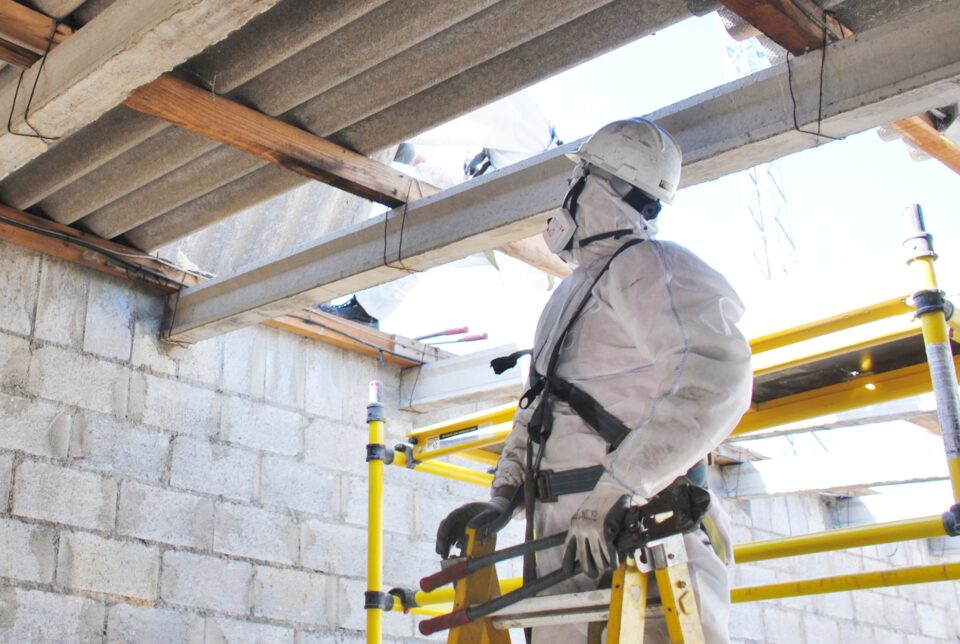The regulations surrounding silica dust in relevant buildings and workplaces have changed in Australia. Like any regulation change, this can require you to make alterations to your own business and way of working.
This all depends on the type of work you do, and it’s important to keep up to date on workplace health and safety information and laws.
What is silica dust?
Silica dust is a type of dust that is generated in a building or workplace that involves mechanical processes such as crushing, cutting, drilling or sawing of natural stone or artificial products which contain silica.
The size of these dust particles varies significantly, with some that are so small that they are no longer visible. These are often called respirable particles and can cause harm to your respiratory system.
Why is it harmful?
New regulations are only set in place if there are health and safety risks involved. Silica can be harmful, especially in the form of dust.
When you or employees breathe in dust from silica-containing materials it can lead to a condition called silicosis. SilIcosis is when those dust particles get trapped in someone’s lung tissue which in turn causes inflammation and serious scarring. The particles also reduce the lungs’ ability to take in oxygen.
Materials that include silica are found in many workplaces and include:
- bricks
- tiling
- concrete
Working with sicilia is a big part of many people’s jobs and is often unavoidable. However, proper legislation can help protect workers.
What legislation is in place to protect workers?
The Work Health and Safety Amendment Regulation 2022 set in place new regulations to help protect workers from silica dust.
According to section 418B of the Regulations, it is prohibited for a business owner to instruct or permit a worker to utilize a power tool or mechanical process to cut material that contains crystalline silica, unless there is a water delivery system in place to prevent airborne crystalline silica, and at least one other designated control measure is implemented.
Equipment like Fume Extractors or a Portable Blower Extractor can help properly ventilate buildings and keep workers safe from harmful particles in the air. These can be used in addition to businesses following the above regulations.
What industries are impacted?
The main industries that will be impacted by the changing regulations are those working in construction, or ones that come into contact with building materials on a regular basis.
Those working in this type of business would have usually come in contact with silica dust on a regular basis. Though limited exposure might not to lasting damage, working in these environments longterm can cause issues, especially without following the new regulations and using something like a Mobile Fume Extractor.

Silica dust risk management strategies.
There are only a few strategies that can effectively help you manage silica dust risk. Though the risk won’t be eliminated completely, these can certainly make a difference.
Follow regulations.
Following the new regulations is arguably the best way to effectively manage silica dust risk. Making sure that power tools aren’t being used to cut material that contains crystalline silica, unless there is a water delivery system in place, is essential.
Use mechanical ventilation equipment.
Mechanical ventilation equipment can help remove harmful particles from a number of substances in the air. Equipment like these differs depending on your needs, meaning speaking to an expert can be beneficial.
For example, Wall Plate Exhaust Fans can clean the air in your building by ventilating the whole factory space. However, a Portable Blower Extractor may be more suitable for your requirements if you’re wanting localised extraction to extract fumes, smoke, and hazardous gases direct form the source.
Work outside.
Working outside can solve ventilation issues, as you are less likely to breathe in harmful particles in an open space. Though working outside doesn’t reduce the risk to nothing, and environmental issues should be taken into consideration, it can be a preferable option if you have the means.
Solve your ventilation problems with Fanquip.
There is a lot to think about when it comes to adhering to new regulations and making your workplace safer for everyone that works there. However, speaking to experts in the industry can really help.
At Fanquip, we are here to support you in finding the right equipment for your business requirements. You can contact a member of the team today and discuss your needs and let us walk you through the different options available.
